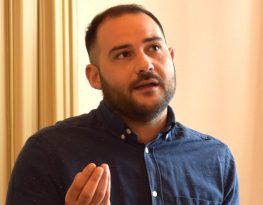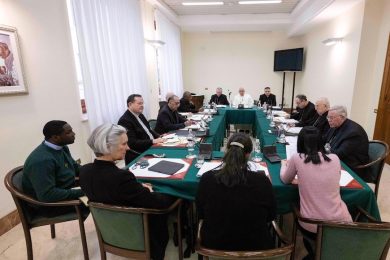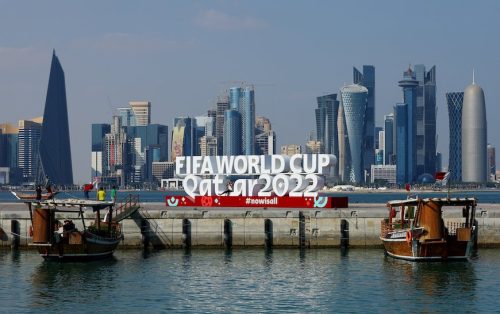By Jonathan Luxmoore | Catholic News Service
OXFORD, England (CNS) — Catholic aid agencies have accused European Union leaders of failing to protect the environment and human rights in draft regulations on businesses operating in the global South.
The proposed regulations “would change the way companies address the negative impact of their activities in the value chain,” explained Giuseppe Cioffo, corporate regulation and extractives officer for the Brussels-based CIDSE, grouping 18 Catholic agencies from Europe and North America.
He said businesses and corporate lobbies pushed EU governments “to modify the proposed rules, making it harder for victims to obtain justice. Meanwhile, individual member-states have looked after their own interests without considering the long-term prospects.”
Discussion continued of the EU’s draft corporate sustainability due diligence directive, which would require large European firms to monitor their supply chains for human rights and environmental abuses.

In a Dec. 12 interview with Catholic News Service, Cioffo said the directive, proposed by the EU’s governing commission in February, should protect poor communities from corporate exploitation.
However, he added that France had pushed for its lucrative arms trade to be exempt, while Germany had tried to shield its companies from court action over their treatment of Indigenous peoples and natural resources.
The New York-based multinational, BlackRock, which manages assets of $10 trillion, had congratulated member-states on excluding financial institutions from the proposed rules, Cioffo said.
“Other countries have also tried to keep activities considered important for their economies out of the text,” the CIDSE officer told CNS.
“But it’s simply shortsighted to think we can exempt the financial sector while including companies that use money from the same sector to commit human rights abuses. It’s time EU member-states thought holistically outside their comfort zones and saw how this directive could assist the much greater objective of human rights and environment protection.”
Under EU Commission proposals, the directive would impose corporate sustainability obligations on EU-registered businesses employing more than 500 people, with a net worldwide revenue of more than 150 million euros ($158 million), as well as on medium-sized companies claiming at least 50% of turnover from “high-impact sectors.”
However, in a June report, the Brussels-based nonprofit Corporate Europe Observatory, which monitors the impact of lobbying on EU legislation, warned the directive had already been “severely watered down” to enable businesses to “avoid taking action, remedying harms and compensating victims.”
On Dec. 1, the European Council, grouping heads of state or government from the EU’s 27 member-states, proposed modifying the directive so rules initially would apply only to companies with 1,000 employees and revenue of 300 million euros.

In a Dec. 2 statement, CIDSE said the council’s response had “struck a serious blow” to the measure, by introducing “a puzzle of half-measures and loopholes.” CIDSE urged the European Parliament to “formulate more ambitious goals” of “human rights over profit” when it debated the draft legislation.
“For citizens of the global South who are already victims of corporate abuse … it will mean crucial land and labor rights for peasants, farmers and Indigenous peoples are left aside,” the CIDSE officer said.
“If climate and environmental damage aren’t covered or only given very limited treatment, it will become much harder for them to seek justice and remedies for the harm caused by the value chains of European companies. And this will remain so indefinitely, potentially for decades to come.”
Catholic organizations worldwide repeatedly have urged measures to protect community rights and livelihoods from aggressive practices by Western firms.
Cioffo said the Pope Francis’ 2020 encyclical, “Fratelli Tutti,” had called on “credible economic actors” to improve “treatment of people and the planet,” adding that CIDSE’s member-agencies hoped the pontiff would now “come out strongly in favor of rules for corporations.”
“Catholics will continue working with other faith communities to protect our common home from the damaging impact of corporations,” Cioffo told CNS.
“EU governments and officials are open to our concerns, especially given the links Catholic communities have with people on the ground. The very fact this directive is on the table reflects the efforts of civil society.”
In a joint Dec. 1 article in the online EU Observer, experts from CIDSE, Friends of the Earth and the European Coalition for Corporate Justice said nonprofit organizations such as FIFA would not currently be covered by the new directive, despite its “handling of human rights issues prior to and during the World Cup.”






















